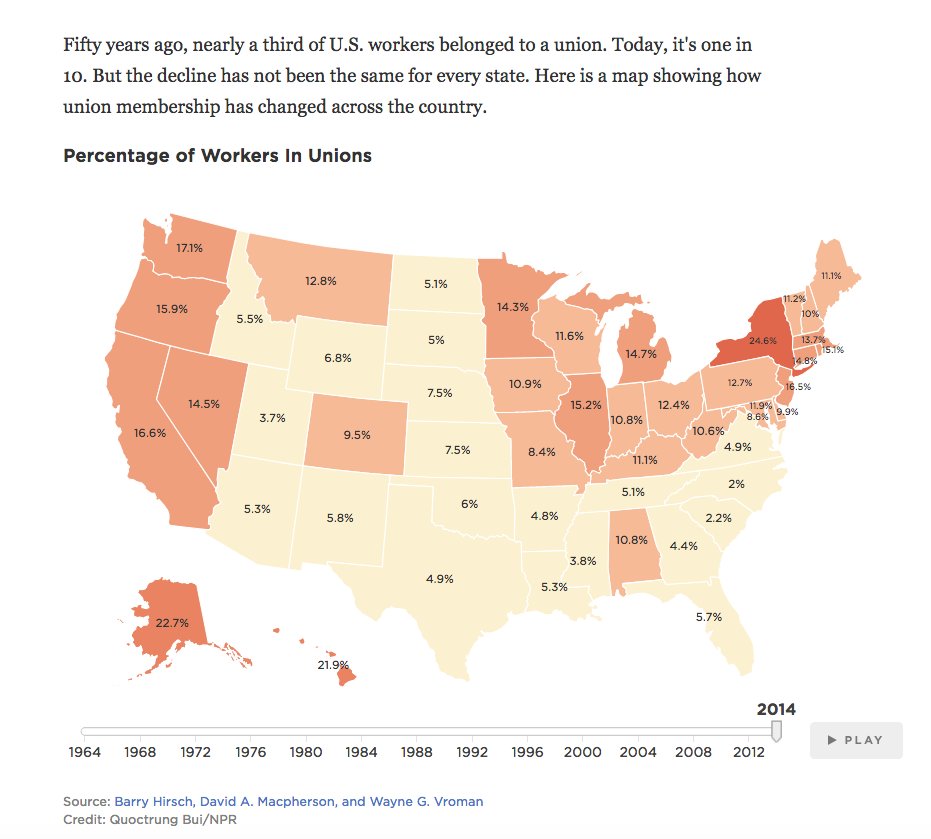
On this #LaborDay2022 I have provided some graphs and images on labor history and labor unions.
If you're teaching modern U.S. history and cover the Gilded Age, and want evidence of a "new Gilded Age," you may also find these useful. Enjoy!

If you're teaching modern U.S. history and cover the Gilded Age, and want evidence of a "new Gilded Age," you may also find these useful. Enjoy!


As you might expect, union membership differs among states and regions in the U.S., and also private versus public sectors. 



It's impossible to talk about labor unions in the U.S. without discussing the immense power and influence of corporations, the Constitution, our anti-union (and illegitimate?) Supreme Court, dark money lobbying, and tax rates.
This is from Jonathan Levy's Ages of American Capitalism. As labor's share of income decreases, corporate profits increase. 

Members of the House of Representatives are more responsive to the needs of the working class and poor in districts that have high union membership.
washingtonpost.com/business/2020/…
washingtonpost.com/business/2020/…

Very alarming stats on the pay of CEOs and how much wealth the 1% own. Thanks to @Claudia_Sahm for the graph in orange. 



Don't forget that the 2017 Trump* tax cuts were outlandishly and immorally generous toward the very rich. 



Remember these trends the next time someone says they don't like paying taxes or believes in tax cuts. EVERY GOP tax cut since the 1980s has delivered most of the gains to the very rich. 



• • •
Missing some Tweet in this thread? You can try to
force a refresh








